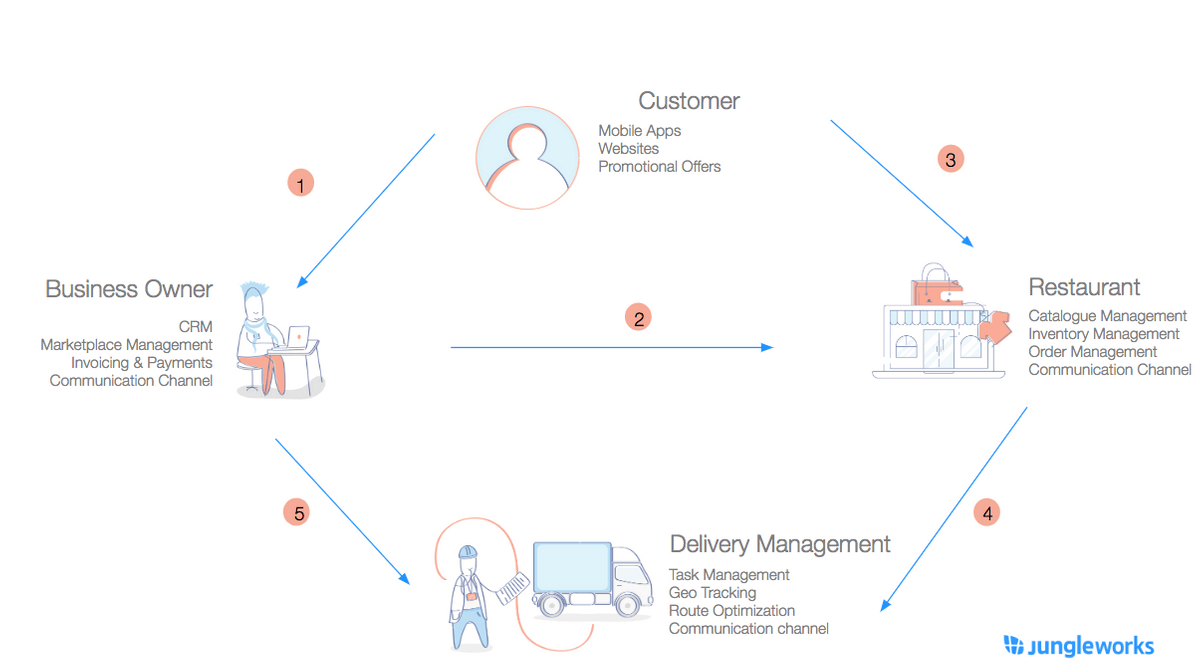
Would Airbnb have been as big of a revolution as it is, had it stayed offline? Yes, the idea would still have been interesting, but how many people would it have reached?
Airbnb is just one in the long list of businesses that have flourished in the past few years primarily because they went digital. The idea is to see your business in a newer framework where the tech allows you to shift your focus from the routine logistical activities and record keeping to the more important business decisions like marketing, partnerships, and growth.
Let’s take the example of a food aggregator. How many orders can you really take via phone, and how convenient is it for the customers to remember the menus and give orders through the phone? You can’t keep informing customers regarding changes in the menu and pricing or of any promotions that you are running. It is wiser to just manage the catalogue and orders online, create promotions and provide online payment services. Then comes the fulfillment – if you are looking to scale, you need to be able to guide your deliverymen in optimizing their routes and assign tasks as quickly as possible while keeping in mind their availability and tentative location before the next delivery.
The customer service in itself is an essential element that can help the business retain its customers while also helping identify and rectify issues with their approach and implementation. Calls are not the most preferred way for providing support, instead chat is considered to be the more efficient option.

One of the key aspects of working with JungleWorks is the belief that you get in the role of digital technology in propelling the business forward. Which is why we talk about our suite for the on-demand businesses so enthusiastically. Just think about it – a dashboard to manage your catalogue, orders, promotions, etc. a website and mobile apps to reach more customers and provide them the seamless experience while ordering, a dashboard to manage all the chats that you get while also send important communication messages to them, another dashboard to track the delivery agents, optimize their routes and assign tasks automatically/manually, an analytics dashboard to go through key business metrics and take decisions based on them – I just gave short intros for Yelo + Hippo + Tookan + Kato – the most common combination the suite used by the businesses use on a regular basis.
An order comes through the apps having been paid already by the customer, goes to Tookan automatically as a delivery task. The restaurant starts preparing the order while an agent is assigned to it and gets the route to complete the task. The order states are updated at the admin and customer end based on the actions that the agent is performing and on completing the delivery, the order is marked as completed. The order amount gets transferred to the restaurant’s account automatically after deducting the commission charges and tax. None of this required the intervention of the business owner or managers at all. Which allows them to work on new partnerships, on expansion plans, marketing strategies etc. How would have this business fared had it stayed offline and tried to manage all this through heavy diaries and phone calls?
Subscribe to stay ahead with the latest updates and entrepreneurial insights!

Subscribe to our newsletter
Get access to the latest industry & product insights.




























